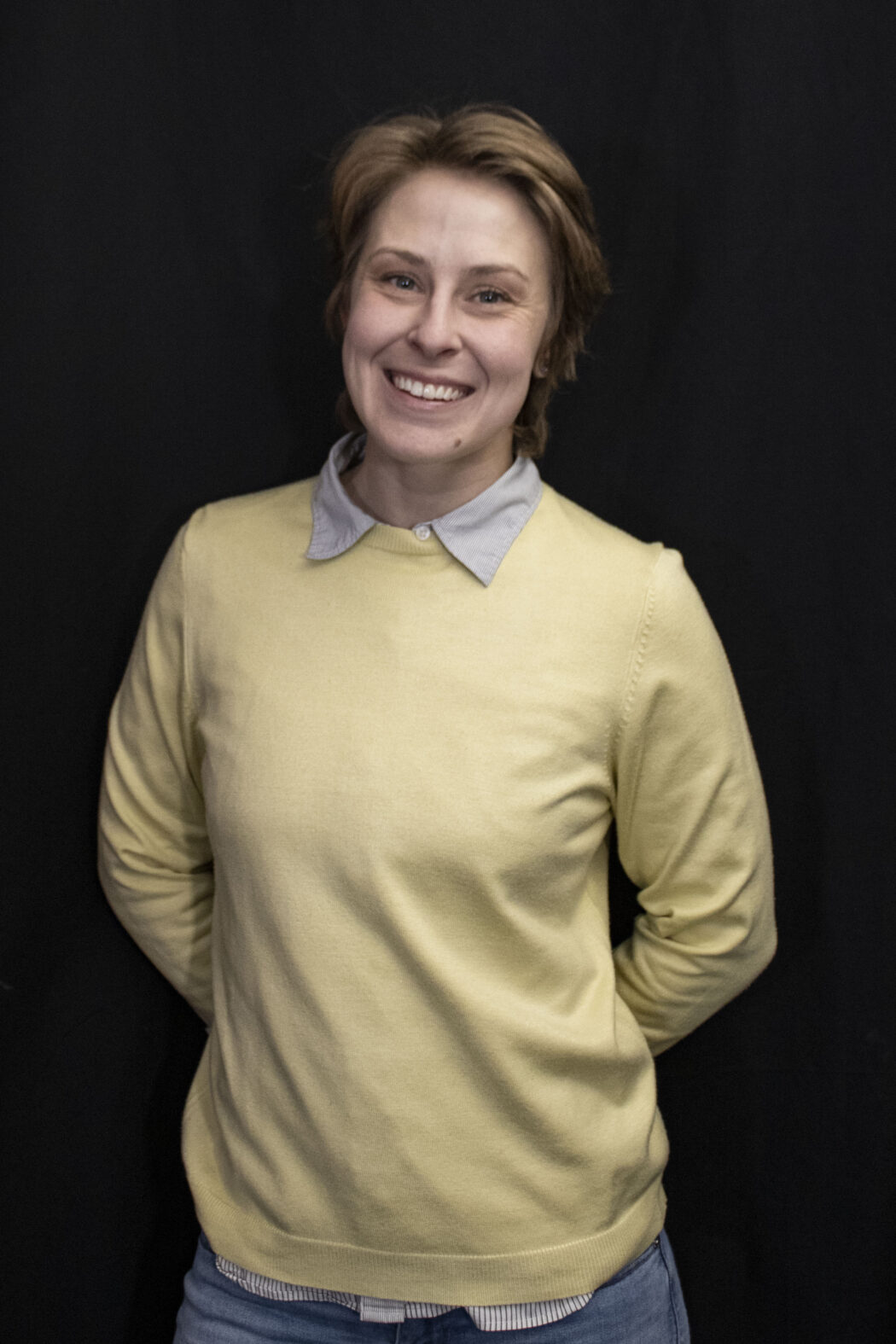Sarah Pope: Army medic, advocate for others
Editor’s note: This article contains a brief mention of sexual assault. Those who have experienced sexual assault can access resources through SAVVI and through the Title IX office.
Sarah Pope wears many hats: graduate student, researcher, mother and leader.
She is also a veteran. Pope served in the Army Reserves as a medic for six years.
“I was going to be an Army nurse, then things didn’t go so well the first time I went to college, and so I dropped out. I knew that I still wanted to be in the military, I still wanted to do medical stuff. So I joined the Reserves as a medic, mostly because I didn’t know what else to do,” Pope said.
Pope’s military service gave her a lifelong friendship and lessons on what it means to be a leader.
“I really only stay in contact with one person that I served with, but she’s my best friend, and I see her pretty regularly. She was also a medic,” Pope said.
Pope said her military service increased her capacity for leadership.
“The leadership experience was really helpful,” Pope said. “As a medic, sometimes you have to tell high-ranking people that they can’t do the thing they want to do because it’s not safe. I really appreciate the experience that it gave me in terms of leadership and in terms of how to talk to people who are above you in a tactful but firm way.”
Pope now serves as the graduate studies senator and uses her leadership skills to help create change. She is passionate about issues such as graduate student pay, and has streamlined the Graduate Research and Creative Opportunity Grant. Pope says she is able to push for change without becoming jaded by reminding herself that she is playing the long game.
“Just like the military, there’s a lot of bureaucracy in academia, and it’s there for a reason, right? We want to make sure that we have policies in place that prevent corruption, but I think sometimes people are really resistant to change,” Pope said. “I just remind myself that it is never a short game. It’s always a long-term game. I have to make sure that I’m building a foundation for future senators and future graduate students.”
When asked about the difficulties of being in the military, Pope said the leadership experience was helpful, but being a woman in the military is extraordinarily difficult. Pope says that she has struggled to conceptualize her military experience due to the sexual assault she experienced during her service.
“Sexual assault is a pretty pervasive thing in the military, and I did not escape that statistic,” Pope said. “It has been difficult to conceptualize my service because there is this overhanging shadow of sexual assault. I think that’s the hardest part is trying not to become disgruntled with all of the people in the military, just because some of the people aren’t so great.”
Pope also has advice for other people, especially other women in the military: “Don’t let them silence you.”
“Women in the military are often so scared to speak up because sometimes the people who hurt you are your boss. Sometimes you go and try and get help, and you’re turned away because these are things that happen under the table behind closed doors,” Pope said. “I just really want to encourage women in the military not to stop seeking justice if they emotionally can. It can be a very long, drawn-out process.”

Pope referred The Utah Statesman to Nick, her ex-husband, to talk about her character. He described her as resilient and pointed out her strength in dealing with the trauma she endured during her service.
“She’s a person that’s just not going to give up because something’s difficult,” Nick said. “She is a very resilient, very determined person.”
Nick also said Sarah has a strong sense of justice.
“She believes that people are kind of owed something for what they do and who they are,” Nick said. “People should get what they deserve.”
Sarah is now a Ph.D. student studying cognitive psychology. Her passion for psychology is due in part to wanting to help people with PTSD. Her research has major implications for people with trauma who lack the ability to imagine images.
“One of the most common things in PTSD work or anxiety work is to help people reground themselves,” Pope says. “A common exercise, guided meditation, is to imagine yourself walking through a calm forest. Well, about two to six percent of the population cannot visualize. They have a dark mind.”
Sarah said there are alternatives for those who cannot visualize with their mind’s eye, such as guided body meditation.
“When you think about PTSD, a lot of it is held in the body,” Pope said. “For people who can’t visualize, being able to do a guided body meditation like squeeze your hands and release, making it something that they can perceptually engage in rather than imagination, can be really helpful.”

